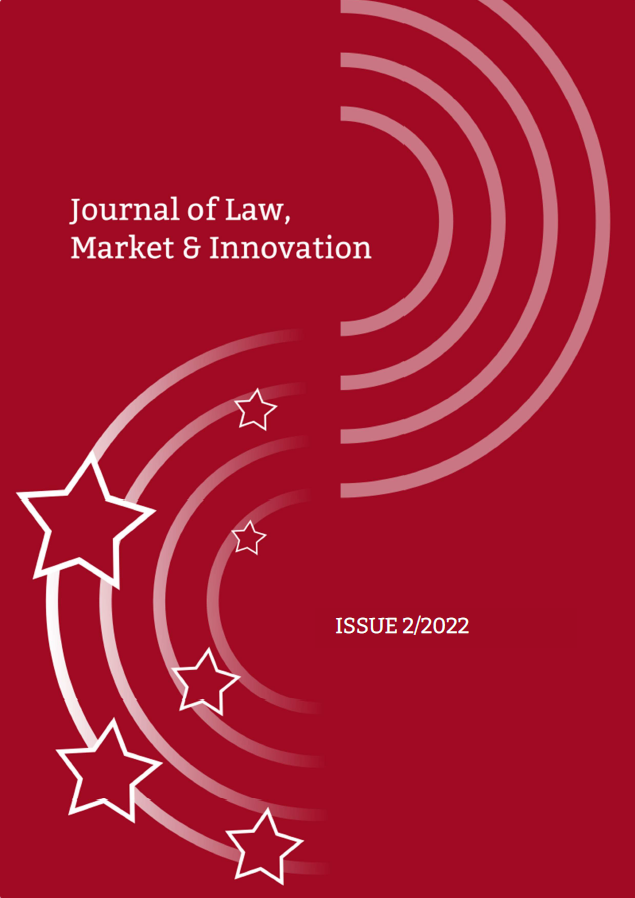The Facebook/GIPHY divestiture: The (new) first of many?
DOI:
https://doi.org/10.13135/2785-7867/6956Abstract
The decision of the Competition and Markets Authority ordering Facebook’s divestiture of GIPHY stands as a landmark to expedite on-going worldwide merger control reform, namely through the imposition of structural remedies upon Big Tech. The theories of harm considered in Facebook/GIPHY are not particularly novel: the competition authority puts forward the loss of competition, as well as the loss of innovation theories of harm, on the basis of the dynamic characteristics of digital markets. However, the low threshold placed by the authority to find a substantial lessening of competition has been decisive towards the order’s final outcome.
The decision has made its comeback on the past experience with Big Tech by placing the spotlight on small-scale but significant takeovers, in the same light of the Guidance issued by the European Commission on the interpretation of article 22 of Merger Regulation 139/2004. Meanwhile, Facebook’s acquisitions over WhatsApp and Instagram are being contested by the Federal Trade Commission before the United States’ District Court for the District of Columbia. As opposed to legal certainty, time and scope have not been an obstacle to revert the deal. The acquisition was signed off in May 2020 for $400 million, and the CMA’s merger control proceedings did not start until June 2020.
Although there was no overlap in relevant commercial activity within the UK, the competition authority’s decision is called to have universal repercussions, notwithstanding the foregoing Australian Competition and Consumer Commission’s investigation on the same acquisition as well as the outcome of the Austrian Federal Competition Authority’s proceedings. The steadiness of the Facebook/GIPHY operation is at stake and a conflicting decision can still jeopardise the CMA’s ruling on a global scale, deeming it a symbolic decision.
The order to revert the acquisition came as a consequence of the fact that the CMA considered Facebook’s proposed behavioural remedies as insufficient, notwithstanding some of them were close to the interoperability mandates set out under the DMA, namely, to maintain an open access to GIPHY’s library and database to existing API partners. Similar commitments were offered by the merging parties on the Google/Fitbit merger scrutinised by the European Commission and were accepted. The ambivalence on the results to prevent Google from degrading interoperability with Android via API is still in liege, and the CMA has chosen to reject behavioural remedies almost by default.
The paper will address the aftermath of the CMA’s Facebook/GIPHY decision in the light of the economic analysis performed around dynamic digital markets. To this aim, we will analyse: i) the existing overlaps on both undertakings’ activities as opposed to the CMA’s opinion that they are close substitutes at the horizontal level; ii) the strength of the ‘killing’ component of the merger, considering the differences between digital and pharma markets in relation to innovation; iii) the effectiveness of interoperability mandates within the Facebook/GIPHY merger as well as the general advantages and drawbacks associated to them in relation to the dynamic competition paradigm.



 EJIF has been approved for inclusion in
EJIF has been approved for inclusion in  The Journal of Law, Market & Innovation is indexed in
The Journal of Law, Market & Innovation is indexed in  The Journal of Law, Market & Innovation is indexed in
The Journal of Law, Market & Innovation is indexed in  The Journal of Law, Market & Innovation is indexed in
The Journal of Law, Market & Innovation is indexed in  The Journal of Law, Market & Innovation is indexed in
The Journal of Law, Market & Innovation is indexed in  The JLMI is classified as a "Class A" journal for Law (Area 12) by the Italian
The JLMI is classified as a "Class A" journal for Law (Area 12) by the Italian 
